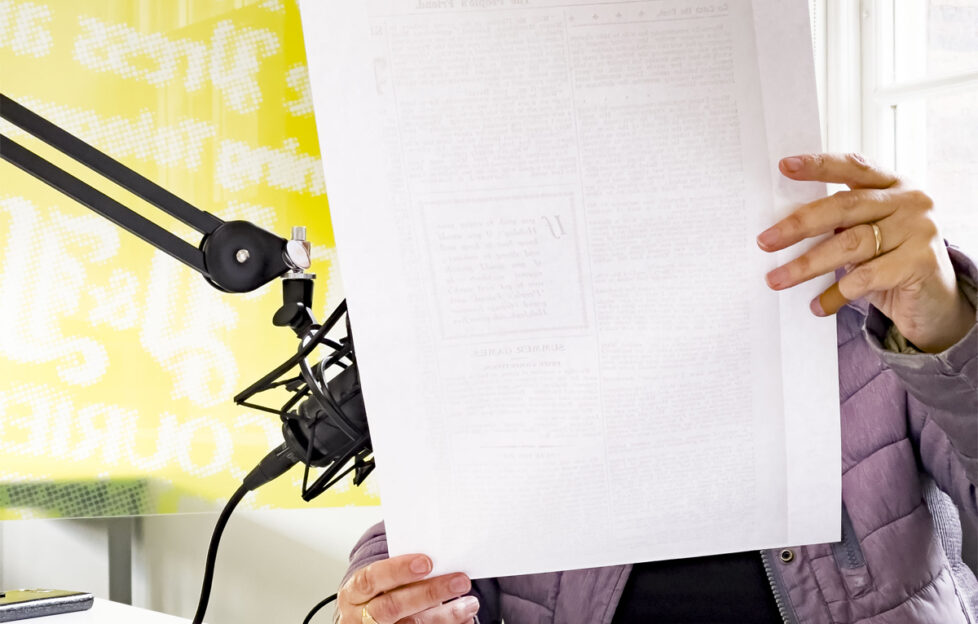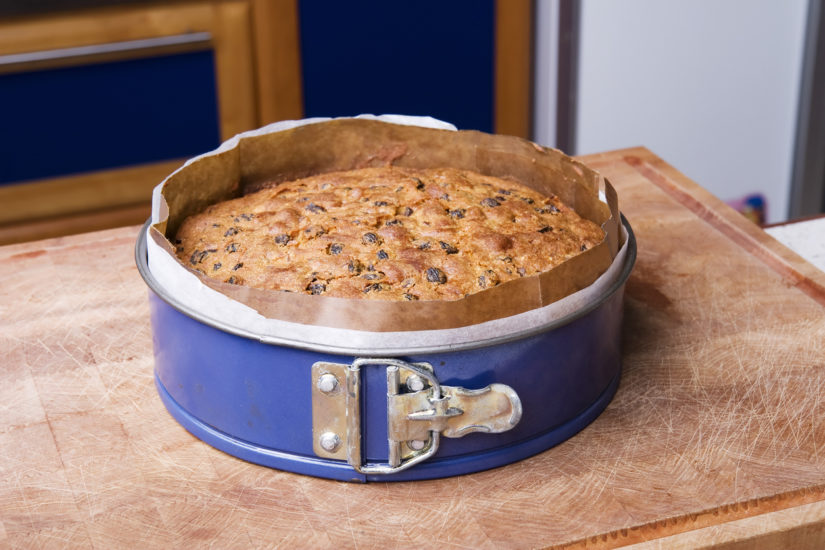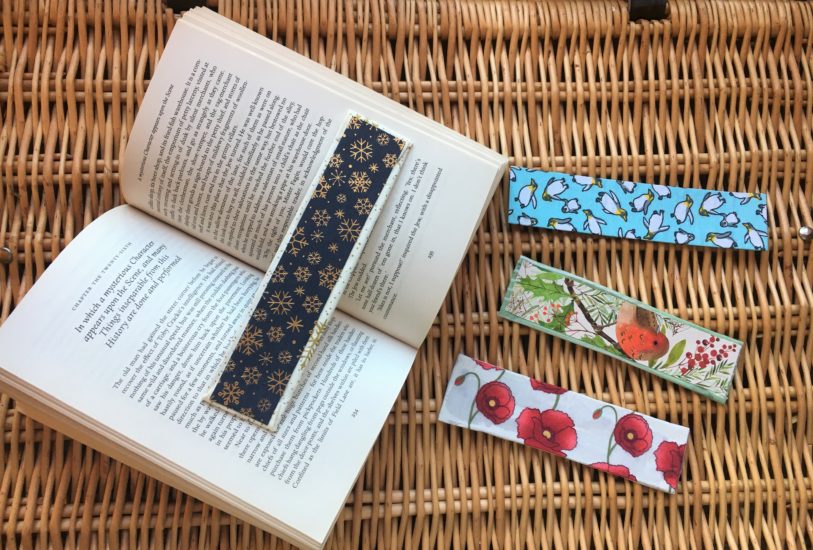
Our latest Reading Between The Lines podcast short story episode is To Catch The Post by Clifford J. R. Cameron from June 6th, 1910. Read along with the story below and listen to see what the team had to say about it!
As David Fraser left the station and went out into the road, a wave of depression passed over to him. This sudden transition to familiar surroundings brought with it a return of memory which a long railway journey had done much to dull—a memory of things far from pleasant.
Six months previously he had taken his young bride to their new home at Stainesmaid, a district still to come under the sway of the jerry-builder. At that time Fraser was doing well in the city as co-partner with a friend in a small business, but about five months after his marriage he had gone to the office as usual one morning, to find his friend absconded and himself ruined.
It was a bitter blow, and only the thought of his wife enabled him to bear up under it. What little capital he had possessed outside of the business had gone to buy his new home, and nothing now remained but to start all over again at the bottom of the ladder.
With this gloomy fact staring him in the face, he had diligently made a round of all the London firms whose line of business he was conversant with, but everywhere he was met with the same answer—no vacancy.
As a last resort he had visited the principal provincial towns but without success, and now he was called upon to face the hardest task of all. He would have to tell his wife that they must sell the home they had only just started.
Half an hour’s walk brought Fraser to his house, situated on an estate that was only just being developed. As the gate clicked behind him a light sprang into being in the hall. The man groaned at this proof of watchfulness.
He thought of the woman waiting to meet him, and compared her loving welcome with his dismal news. No wonder his hand trembled as he inserted his key in the latch, and a sigh of relief escaped his lips as the door swung open and he found the hall empty.
Slowly he walked into the front room and glanced around. On the table a dainty meal was spread for two, presenting an exhibition of spotless line and sparkling silver. Before a glowing fire his slippers were warming in company with the household cat, whose purring kept time with the ticking of the clock.
Fraser sank into an easy-chair. To think that very shortly all this must be given up! The house would have to be sold, the servants dismissed and expenses cut down to the very lowest limit.
A light step sounded outside the room. The door was opened hurriedly, and aa skirt rustled silkily across thee carpet. The next moment Fraser felt his eyes covered by a pair of soft, warm hands, and a feminine voice cried—
“Guess!”
“The dearest little wife in the world,” proclaimed Fraser as gaily as he could. Then, as his vision was once more restored to him, he stared at his wife in astonishment.
“Why the honour of seeing you in your best evening frock, Mary?” he asked.
For answer she swiftly bent over him and kissed his forehead. Then, dexterously eluding his grasp, she took her place at the table.
“If you’ll come along like a good boy and have some dinner, you shall hear all the news later,” and saying this she touched the gong. Fraser meekly obeyed, knowing that the presence of the servant would effectually prevent the discussion of business topics for a time.
When the remains of the meal had been finally cleared away and orders issued that master and mistress were not to be disturbed, David pushed his chair to the fireplace and drew his wife to a seat on his knee.
“Now, young lady,” he said. “I want a true account of all that has happened since I went away, especially that which has bearing on your mysterious behaviour this evening.”
“Well, first of all, tell me—have you had any luck on your travels?” asked Mary.
“Not much, dear, not much, but we must hope for the best,” replied David cheerfully, wishing that his first evening home should not be clouded.
“Then how dare you be so happy, sir!” said Mary sternly.
David looked up in surprise, but a merry twinkle in his wife’s eye quickly dispelled any fear of her being in earnest. Stretching out an arm she reached down a letter from the mantel-piece, and held it before her husband’s face.
For a few minutes there was silence as he perused it, then with a whistle of astonishment he let the paper flutter to the ground.
“Impossible!” he ejaculated.
“Nothing of the kind,” replied his wife in a matter-of-fact tone. “The great Sir James Merriebank wants a confidential secretary who knows his business, so he offers you the post at five hundred a year. You are going to accept so there is the whole matter in a nutshell.
“When I saw the name on the envelope I thought it too important a letter to leave unopened, and if you hadn’t returned this evening, as you promised, I should have written to Sir James myself and accepted on your behalf.”
“By Jove, yes,” said Fraser as he lifted his wife from his knee and crossed to the writing-table. “I must not forget the offer only holds good for reply by first post tomorrow morning. I had better write now and get finished.”
The writing of the reply was no light work. There were conditions to be stipulated, references to be given, the qualifications to be stated, but eventually the document was written and the envelope addressed.
Then came the question of a stamp. After hunting through his pocket-book and the pigeon-holes of his desk, David was forced to confess that he had used his last one. Despite a frantic search in all manner of places, Mary had to agree.
Fraser whipped out his watch.
“Half-past seven,” he said, “and the post office is not only half an hour’s walk, but it closes at eight. I wish to goodness the postal authorities would have some sort of automatic arrangement on each letter-box. Just think of the irony of having a box outside one’s house, and having to walk two miles to post a letter.”
“Couldn’t you give the letter to the postman when he clears the letter-box, together with the money for the stamp?” asked Mary anxiously.
“Too risky,” replied David, “and after all, a walk won’t hurt me. Good-bye for the present.”
Taking his hat and stick from the stand, Fraser left the house and started to walk briskly in the direction of the village, where the wired-off portion of the grocer’s shop did duty for a post office.
It was not easy walking. The estate on which his house was built had not been developed far, and the roads were still more or less in a rough state. Paths were uneven and badly defined by kerbstones, grass growing where pavement should have been. Fraser soon, however, began to warm to his work. With hat set firmly on his head and grasping his stick by the middle, he swung along at a good pace.
He was just congratulating himself on not having had to tell his wife how near they had been to selling the home when a sound fell on his ear that quickly brought him to a standstill. It was the sound of a toy whistle, followed by a woman’s cry for help. Coming on a dark night and in such a lonely place it struck Fraser like the lash of a whip. For a moment he stood as one bereft of his sense, but the next minute the cry was repeated, and Fraser located it as coming from a house standing some way off on a side road.
Without further hesitation he left the ill-defined path and commenced to run towards the house where assistance was required. It was perilous going in the dark! Little heaps of stones caused him to stumble and fall, low-growing bushes entangled his legs, but he kept straight on.
Reaching the fence which ran round the front garden, he lightly vaulted over, landed on a soft flower-bed, heard his clothes rip ominously in the clutch of a rosebush, and then tore madly round to the side of the house where the entrance appeared to be. A flight of steps, surmounted by a stone porch, led up to the front door, which was standing wide open. At the top of these steps Fraser came to a pause.
Only his own heavy breathing and the thumping of his heart could be heard. The light of the hall lamp showed his boots covered with clay and his nether garments torn in a dozen places—results of the mad rush that had landed him in his present position. So peaceful did everything appear that Fraser was half inclined to fancy he had made a mistake, although he could not understand the door being open and nobody about.
Suddenly, from the top of the house, came the sound of a door being quickly opened and then shut, and some one came rushing wildly down the stairs. It was a woman—a woman with the fear of death stamped vividly on her face.
Her clothes were crushed and creased, her hair dishevelled. In her hand she held a child’s toy whistle, but on seeing Fraser she flung this away, and, running forward, caught him by the arm.
“Thank God, for sending somebody at last!” she cried passionately. “Go, fetch a doctor, quickly—my child, diphtheria, and I am all alone.”
Bewildered by this outburst, Fraser stood as if rooted to the ground. The next moment the woman was exerting all her strength in a wild endeavour to thrust him out the door-way.
“Oh!” she cried fiercely. “Cannot you understand? My only child, and she will choke to death!”
Her hold on Fraser loosened. She tottered and would have fallen, but Fraser caught her and carried her into an adjoining room. Laying her on a couch he snatched a bottle from the sideboard and forced a few drops of brandy between her teeth. As soon as fluttering eyelids announced the return of animation, Fraser rushed from the house, pausing only to read the name on the fanlight.
Only too well had he grasped the woman’s meaning. She was alone in the house, and her child had developed diphtheria. Little as he knew of this disease, he believed it demanded immediate and skilled attention. One moment he cursed as he thought how far was the nearest doctor, the next moment he thanked heaven that he had been a crack runner at school, ill-trained though he was now.
Forgetting the important letter he had set out to post, Fraser buttoned up his coat and set off at a swinging pace. It did not take him long to find out the difference between daylight plus a cinder track, and darkness plus a lumpy road.
His course led through a part of the estate that had not been built upon, and the only road had suffered badly through disuse. On he pounded, one minute tripping over some inequality, the next minute floundering amongst innumerable ruts.
Once he wandered off the track, and came heavily to the ground over a kerbstone. When he got up his head felt very strange. His lefts, too, were beginning to feel numb, and his heart beat violently against his ribs. Fancy-coloured lights danced before his eyes with irritating persistency. Presently he thought he could distinguish a red light predominating over the others. It blinked and twinkled, blinked and twinkled, but never appeared to get nearer, and it seemed to Fraser as though he could never reach it.
Lack of training was having a visible effect. His breath came in short sobbing gasps, his throat felt like molten metal, and his clothes seemed a suit of armour. Gradually, his pace fell to a trot, from a trot to a half walk, and he finally staggered up to the doctor’s house like a drunken man.
Dr Macdonald was crossing the passage to his study, when some one bumped heavily into his front door, and the bell rang as if the handle were being clutched at for support. On opening the door the doctor found man extended across the mat; white-faced, panting and exhausted. As the doctor carried him into the house, the man opened his eyes and muttered—
“Hawthorne House — child — diphtheria —quickly.”
Hurriedly summoning his wife to take charge of this strange visitor, the doctor seized his emergency bag and ran round to the stables. The groom was unharnessing the horse and trap in which he had been driving his master on a late round, but a few words sent him to work tightening buckles again. Three minutes later the trap was rapidly covering the distance to Hawthorne House.
When Fraser regained consciousness he found himself in bed in a strange room. His head throbbed painfully, and he felt very weak. Some one stirred at the end of the room, but the sound fell on the sick man’s ears as though the action had taken place outside in the road.
For a long time he stared at the wallpaper, tracing the pattern in an aimless, perfunctory manner. Once he tried to think what it wall meant, but his memory failed him miserably. Presently a cool hand was placed on his forehead, and a uniformed nurse bent over him.
“Awake?” she asked. “Now please don’t try to think, but just drink this and go to sleep again.”
The refreshing draught was welcome to his parched throat, and with a sigh of content Fraser closed his eyes.
When he next awoke it was with a clearer brain. The pattern on the wall no longer represented old-time knights with sword and lance, but resolved themselves into examples of geometric stiffness. Gradually his memory came back, and a shudder ran through his frame. Instantly a chair was pushed back, and some one crossed the room. Then a kiss fell lightly on his brow.
“Mary?” he asked dreamily.
“Yes, dear, your own Mary,” replied his wife. “How nice of you to wake up just when it was my turn to nurse you.”
“Your turn to nurse me?” asked her husband in a puzzled tone. “Am I very ill, then?”
“They let me look after you for two whole hours in the afternoon when nurse goes out for some fresh air. You’ve had rather a bad time, poor boy, but now you must try and get a little better every day. Oh, David, how brave you are!” and a hot tear fell on the sick man’s cheek.
“The child—was I in time?”
“Just by five minutes or so,” replied Mary as she laid a restraining hand on her husband’s head; “but you mustn’t talk if you are going to get excited. Dr Macdonald says perhaps five, certainly ten, more minutes would have been too late.”
“How long have I been here?” demanded David next.
“Two days,” replied Mary. “You collapsed in Dr Macdonald’s house, and they carried you upstairs, where you now are. When the doctor returned from Hawthorne House he found another patient to attend to, and you put to bed in double quick time. They got my name from some papers in your pocket, and sent the groom across for me. I was awfully frightened at first, but now I am getting quite an experienced nurse, and I feel so very, very proud of you.”
A wave of emotion suddenly passed across Fraser’s face, and a troubled look came into his face.
“My poor wifie,” he said, “of course my letter to Sir James never was posted, and as I did not answer his letter in person he will probably have thought I did not care for the proposal. I suppose the apointment has gone to somebody else now. It’s jolly hard lines on you dearest, but the one consolation is that it couldn’t be helped—I had to do my duty. We must just peg away somewhere else, that’s all.”
“Oh, is it? I’m rather inclined to think that it’s the point where you start making mistakes,” replied Mary solemnly. “Now, if I tell you a really big, big piece of news, will you promise not to get excited?”
“I’ll try not to,” said David, smiling at the way in which his wife was treating him.
“Then tell me—do you know the lady whose child’s life you saved?”
“No.”
“Well, her husband is a Mr Dunton, and what firm do you think he is a partner in?”
“Is this a guessing competition?” asked David blandly. “No, I haven’t the remotest idea.”
“Well, Mr Dunton is the junior partner in Messrs Merriebank, Limited,” announced Mary gleefully.
“He has been over to see you several times, and asked me if you were the Fraser his senior partner had offered a berth to. Of course, I told him everything and explained how it was you never replied to Sir James Merriebank’s letter. He is so pleased with what he calls your heroic action that whatever do you think he has promised to do?”
“Give it up,” said David.
“Well, he is making arrangements for us both to go on a seat trip to get you quite well, and then you are to join his firm as the manager of a new department they are opening. There now, hasn’t everything worked out splendidly?” and Mary clapped her hands for sheer joy.
“Splendid!” cried David, as he drew his wife down until her head rested upon his pillow. “Splendid! Why, it’s simply ripping!”
Any further remarks that Mary may have made were too smothered to be intelligible. Perhaps, like a good wife, she let her husband have the last word.




